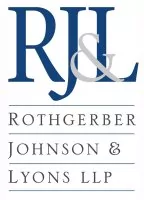Mixed-motive cases are the easiest type of discrimination lawsuit plaintiffs can bring against employers. In a decision issued June 9, 2003, the U.S. Supreme Court made them easier still.
In a mixed-motive suit, plaintiffs allege that an employer had both legitimate and illegitimate reasons for taking adverse employment action, such as firing or failing to promote them. For example, in a recent opinion from the U.S. Supreme Court, Desert Palace, Inc. v. Costa, Catharina Costa claimed that her employer, Desert Palace, Inc. (d/b/a Caesars Palace Hotel & Casino), fired her both for a legitimate reason (she had a long disciplinary history that culminated in a physical fight with a warehouse coworker) and for a discriminatory one (because she was a woman). A jury sided with Costa and awarded her more than $364,000. The federal appeals court for the Pacific states upheld the jury’s verdict after wading through what it called a jurisprudential quagmire, due to the confused state of the law in this area.
The Supreme Court unanimously affirmed the decision. It held that under Title VII—the federal law that prohibits discrimination in the workplace on the basis of race, color, religion, sex, or national origin—plaintiffs carry the burden of proof if they demonstrate that their status as a member of a protected class (e.g., here, the fact that Costa was a woman) was a "motivating factor" in their employer’s decision to take an adverse employment action, such as declining to hire or discharging them. It clarified that plaintiffs need not show direct evidence of discrimination; an entire case built on circumstantial evidence is all that is necessary.
The news is not all bad, however. The Supreme Court also reaffirmed that under the 1991 civil rights amendments to Title VII, Congress provided employers with a limited affirmative defense in these mixed-motive cases. If an employer can prove that it would have taken the same adverse employment action in the absence of the discriminatory motive, then the plaintiff may recover only declaratory relief, limited injunctive relief, and attorney’s fees and costs. Consequently, upon such a showing by an employer, a plaintiff cannot, for example, be given monetary damages, reinstatement, or the sought-after promotion. As a result, in such cases, plaintiffs’ victories are more form than substance—they get the satisfaction of knowing that a court or jury found that their employer discriminated against them, but they do not get any money or their job back. At the same time, though, plaintiffs do not have to pay their attorney, and the employer does—a fee that can easily reach over $50,000 in a complex case.
None of this helps Caesars Palace. Because the Supreme Court held that the trial court’s jury instructions in that case were appropriate, the jury’s verdict stands. At trial, Caesars Palace failed to persuade the jury that it would have fired Costa due to her disciplinary problems even if she had been a man. Thus, it did not even gain the benefit of this limited affirmative defense.
Practical Significance
While the Costa opinion is only a mixed blessing for plaintiffs themselves, it is a boon for plaintiffs' attorneys, who will get paid by the employer even if it succeeds in its affirmative defense. That fact alone should be enough to cause an increase in mixed-motive filings.
Eric Hall is an associate in RJ&L’s Colorado Springs office where he practices in the firm’s Religious Institutions and Labor and Employment Law Groups. Prior to joining RJ&L, Eric served the Honorable David M. Ebel of the U.S. Court of Appeals for the Tenth Circuit as a law clerk.
This article is a publication of Rothgerber Johnson & Lyons LLP and should not be construed as legal advice or legal opinion on any specific facts or circumstances. The contents are intended for general informational purposes only, and you are urged to consult an attorney concerning your own situation and any specific questions you may have.
©2003 Rothgerber Johnson & Lyons LLP

